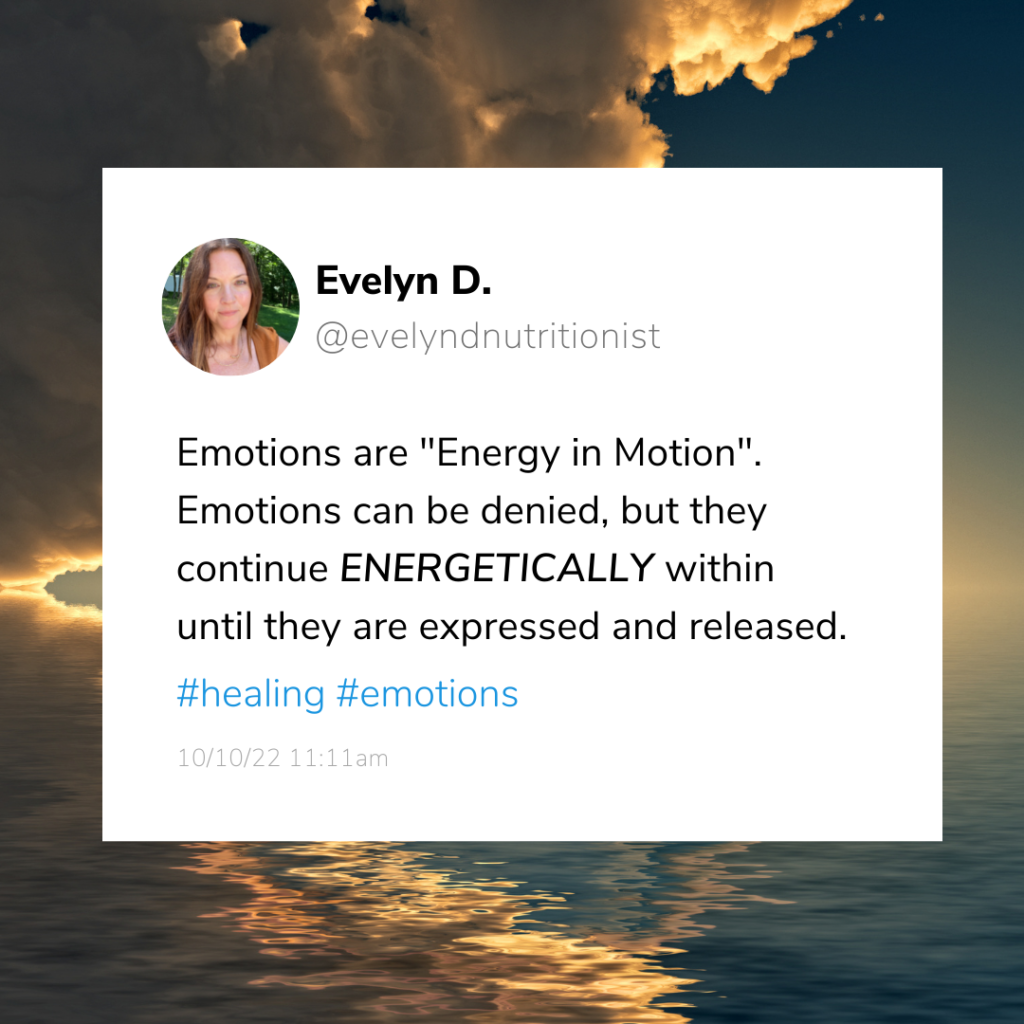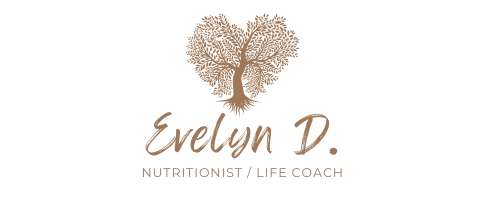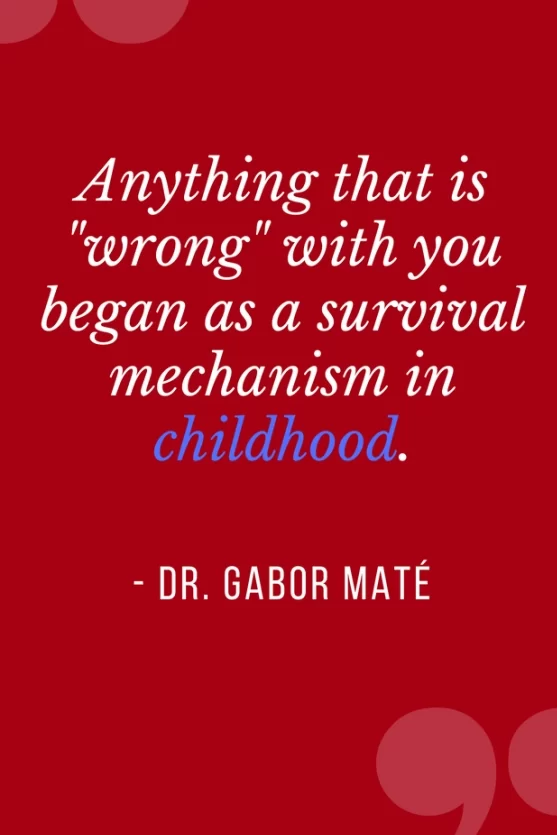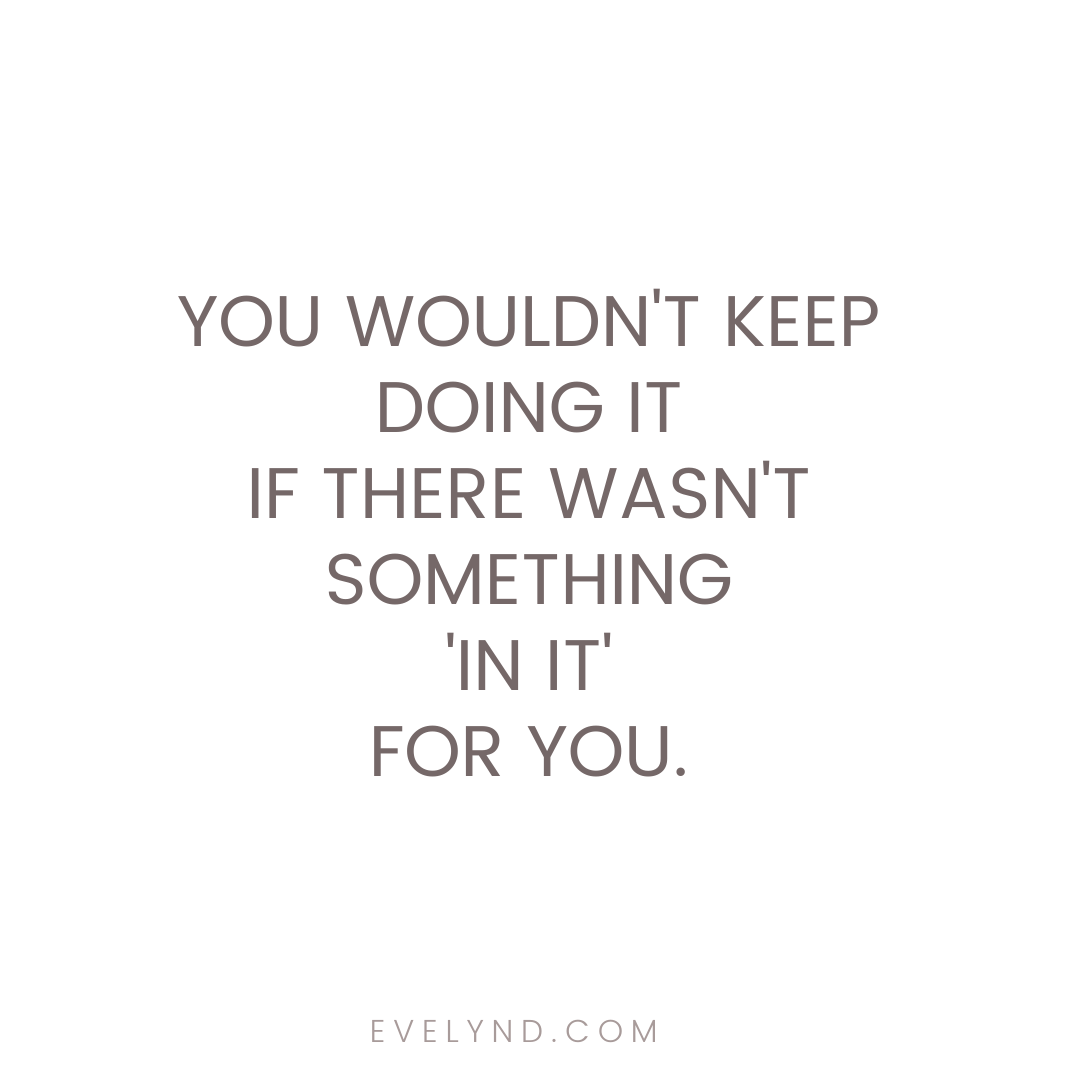I’m reading Dr. Gabor Mate’s book, When the Body Says No where he shares his compelling findings on the “stress” disease connection. His work (and the work of many others) reiterates what I’ve been realizing and sharing over the past few years around the emotional root cause of pretty much any health challenge.
Our response to PERCEIVED feelings of rejection, neglect, shame, stress, abuse, trauma, etc..(even if you were fortunate enough to have the best parents and upbringing in the world) will often lead to the difficult and unconscious choice of repressing your true emotions (aka: abandoning yourself in Gabor’s words).
WHY?
We make the unconscious choice to suppress in an attempt to prevent possible rejection or negative reaction from our parents, family, peers, authorities or caregivers. (Acceptance equates to survival in our primal physiology.)
In other words, we learn to abandon ourselves and the expression of our real emotions in order to feel loved and accepted and/or to avoid criticism, abuse or rejection.
It’s simply the safest choice we can make as a child, but over time, we are left to deal with the consequences of that self-abandonment.
We eventually realize that we’ve lost our connection and trust within ourselves and our bodies.
Here’s a tiny example of how I learned to cope with challenging emotions in a pretty common childhood experience:
I was a fifth grader at St. James School in Sister Mary Clarice’s class – the nastiest, meanest nun I’ve ever encountered. (God rest her soul🙏.)
She had asked a question of the class and for whatever reason, she called on me. I was labelled “shy” since kindergarten, so I meekly answered her question – and it was wrong.
She chided and humiliated me in front of the entire class. I could hear the laughter and snickering from my classmates as my eye caught her menacing grimace of a smirk (my perception at the time).
In that moment, I completely shrank inside.
In order to prevent that shame and humiliation from ever happening again, I unconsciously started to mold myself into an even safer version of myself.
A person who couldn’t risk being wrong and quickly learned it was safer to be right.
A person who wanted to lay low, stay under the radar and never be called upon.
A person who didn’t express herself or her emotions.
The possibility of me being myself, being wrong, or made fun of was just too big a risk for me to ever take again.
The REAL me? …well, clearly she wasn’t good enough, smart enough or safe enough, so I unconsciously abandoned her and went along the path of compensating, hiding, stifling and protecting myself.
Whether this awful nun intended to or not, she squashed my light that day – she fed my already low self-esteem that had been dinged from other childhood experiences…and layer upon layer, the self-protection, risk avoidant, untrusting version of (not) me, continued to be the mask or shield I put-on to survive.
NOW let’s connect this ‘little t’ trauma to what gradually evolved in my physiology and psychology over time:
PHYSIOLOGY
- Nervous system: ACTIVATED – leaning toward fight or flight – hyper-vigilance mode
- Hypothalamus (brain) signals pituitary to hormones: THYROID, ADRENALS, OVARIES which starts off in overdrive, eventually leading to down-regulation (low functioning hormonal response, “adrenal fatigue”, burnout, hypothyroid, early menopause, etc..)
- Increased cortisol/stress hormones = impacts insulin signaling = weight gain
- Increased cortisol erodes gut lining, poor detox = food sensitivities, digestive issues, heavy metals
- Increased cortisol effects immune system = inflammation, autoimmune thyroid disease/Hashimoto’s Dx
PSYCHOLOGY
- Emotionally disconnected. Suppressed negative emotions (while positive emotions also were numbed/muted).
- Emotional eating and later over-drinking as a teen through adulthood in order to “feel better” and numb.
- Overly independent. “Don’t need anyone. It’s all on me.” Can’t ask for help/express needs or show any vulnerability. Better at being in “Savior” mode (helping other people with their problems).
- Depending on the life stage or situation, could come across as quiet, aloof, cold, judgmental, better than everyone OR nervous/avoidant/socially awkward OR sarcastic/snarky/wild/rebellious 🥴 OR smart/caring/reliable/grounded/calm/put together/lovely/funny/witty (on my good days)
- Over-achiever – constantly researching, pursuing advanced education/certifications, seeking optimal solutions, always wanting the best, materialistic, appearance focused, food obsessed, orthorexic, etc..
- Underlying sense of insecurity (not feeling safe) = led to seeking PERFECTION, CONTROL, PRESSURE = manifests in chronic dieting, overexercising, overthinking, over-seeking, over-ing, the need for distraction, shopping and career focus in order to compensate
It’s important to emphasize that in my case, the “root” of all the physiological and behavioral adaptations that I experienced through my life was emotional suppression.
My weight/health struggles and my diagnosis of Hashimoto’s was not some random affliction that runs in my family. It was the result of YEARS of hiding and stifling myself and my feelings – masking and denying my true self and stressing out my systems that led to that dis-ease state.
What is SO SO important for anyone struggling with health or behavioral challenges to know is this:

When you start to unpack the emotions you’ve learned to avoid and connect the health issues and compensatory behaviors you are experiencing at this ROOT CAUSE emotional level, you my Dear, are on your way to true healing, freedom and total transformation.
Yes, your diet and lifestyle do matter. Yes, you may need medication or supplements or some sort of mitigation to help bring you back into balance, but NO AMOUNT of external fixing is going to truly heal the root problem until you address it at the emotional root as well.
I didn’t need to confront that mean old nun. I don’t have to relive my past or prove anything to anyone. I don’t hate my past or my past compensations — because those coping mechanisms helped that little girl – me – “survive” and “feel safer” when I didn’t have the capacity, tools and awareness that I’ve come to learn and embrace.
I just have to be willing to pause and practice seeing, feeling, expressing and releasing what I’d become so so masterful at protecting.
On my ongoing journey, my commitment to this inner work has allowed me to experience what I would consider Hashimoto’s “remission”. I don’t have any health issues, hormonal imbalances or symptoms that impact me. I’d say I’m aging pretty damn well in my 50s. I’m not perfect by any means. I can still lean toward being “quiet” emotionally, but I’m now well-grounded in a place that feels more aware, aligned and always willing to go deeper to uncover more of who I really am.
I hope you’re on a similar path too.
xo,
Ev





